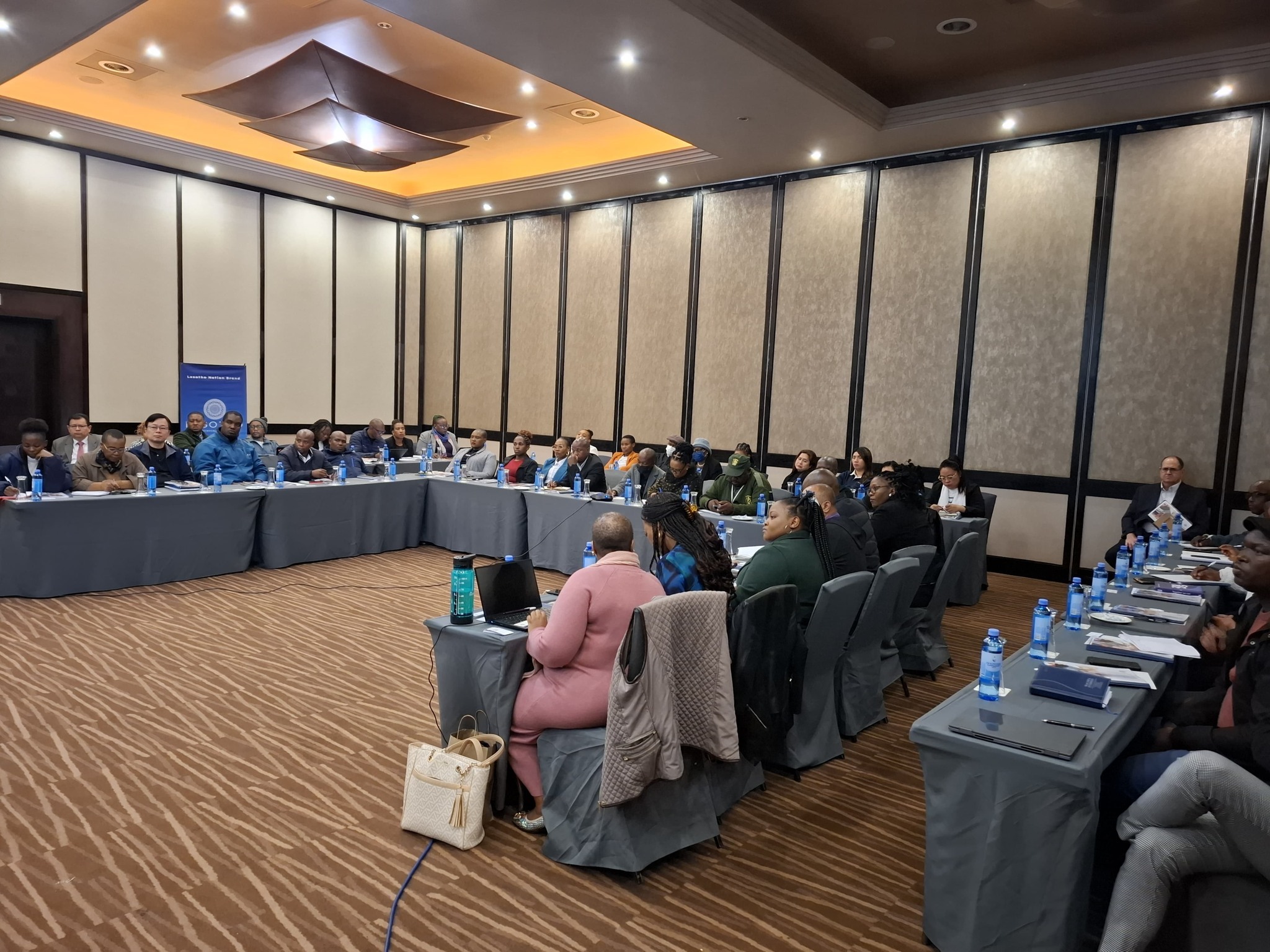Moroke Sekoboto
THE Lesotho National Development Corporation (LNDC), with support from the Competitiveness and Financial Inclusion (CAFI) project, is in the process of promoting ethical manufacturing and rebuild confidence in Lesotho’s ailing textile and apparel industry.
The two organisations this week hosted a two-day Worldwide Responsible Accredited Production (WRAP) Technical Training focused on social compliance and sustainability.
WRAP is an independent, non-profit organization of global social compliance experts committed to promoting safe, lawful, humane, and ethical manufacturing through certification and education.
The training, which took place from Tuesday to Wednesday at Avani Maseru, comes amid ongoing challenges in the textile sector, including inflation and uncertainties surrounding the African Growth and Opportunity Act (AGOA).
Three WRAP experts; Bart Seliger, Subburaja Ayyasamy, and Vinay Saxena, led the training, equipping local entrepreneurs with the knowledge to help their factories meet social compliance standards and achieve sustainability.
Speaking at the workshop, Minister of Trade, Industry and Business Development, Mokhethi Shelile, said WRAP certification was more than just a credential, but a symbol of commitment to ethical manufacturing, fair labour practices, and responsible business conduct.
“The WRAP certification is not just a credential; it is a testament to our commitment to ethical manufacturing, social compliance, and sustainable business operations. It underscores our dedication to creating a business environment that respects labour rights, ensures fair treatment of workers, and upholds the highest standards of workplace safety and environmental stewardship,” Mr Shelile said.
He reiterated the strategic importance of the textile and apparel industry to Lesotho’s economy.
“This sector remains one of the largest private-sector employers in the country, employing more than 32,000 people and accounting for 92% of manufacturing jobs. Its impact goes beyond direct employment, creating numerous indirect jobs across connected industries,” he said.
Mr Shelile also said the global textile and apparel sector continued to face headwinds stemming from a prolonged economic slowdown that began in 2023 and has extended into 2025. Key factors include inflation, geopolitical tensions, regional conflicts, rising supply chain costs, inventory surpluses, and the recent “Trade War 2.0” initiated by the United States government, which has disrupted global supply chains through the imposition of new tariffs.
He explained that in response to these disruptions, international buyers were cutting supply orders to better manage inventories and cash flows, developments which he said had adversely affected some Lesotho-based factories.
“As a result, buyers are now opting for more diverse sourcing strategies. Lesotho must therefore adapt to remain competitive in these evolving market conditions,” he said.
“We must acknowledge the fierce competition we face—from regional players such as Kenya, Madagascar, Ethiopia, Mauritius, and Tanzania, and global manufacturing giants like China, Vietnam, Bangladesh, and Central America. These countries boast highly advanced factories, state-of-the-art technologies, and skilled labour,” he added.
Mr Shelile revealed that LNDC had been engaging with WRAP management teams in the United States and South Africa to discuss the local industry’s challenges and to reaffirm Lesotho’s commitment to Environmental, Social, and Governance (ESG) principles, as well as tackling Gender-Based Violence (GBV) in production environments.
He further underscored the government’s commitment to supporting initiatives that raise industry standards and promote ethical business practices.
“We understand that the future of our economy depends on our ability to produce high-quality goods while upholding social and environmental responsibilities,” he said.
“As such, we will continue investing in training programs, assisting industries in achieving global certifications, and fostering an environment where ethical business practices thrive. We aim to develop a comprehensive roadmap to strengthen the entire manufacturing value chain, attract more investors, expand our international order base, and—most importantly—safeguard and create decent jobs for our people,” Mr Shelile concluded.
Meanwhile, CAFI Project Manager, Chaba Mokuku, said Lesotho became increasingly vulnerable to economic shocks and disasters due to climate change impacts dating back to 2015.
“This vulnerability was exacerbated by the COVID-19 pandemic, which led to a sharp decline in Foreign Direct Investment (FDI) and the closure or downsizing of many businesses.
“We must revitalize the textile and apparel industry and build a coherent, sustainable textile ecosystem that promotes employment and collaboration. Compliance is not just a regulatory requirement—it’s a crucial ethical obligation if we are truly committed to economic growth.
“We need to position Lesotho as a competitive investment destination and diversify our markets to support private sector transformation,” Mr Mokuku said.

